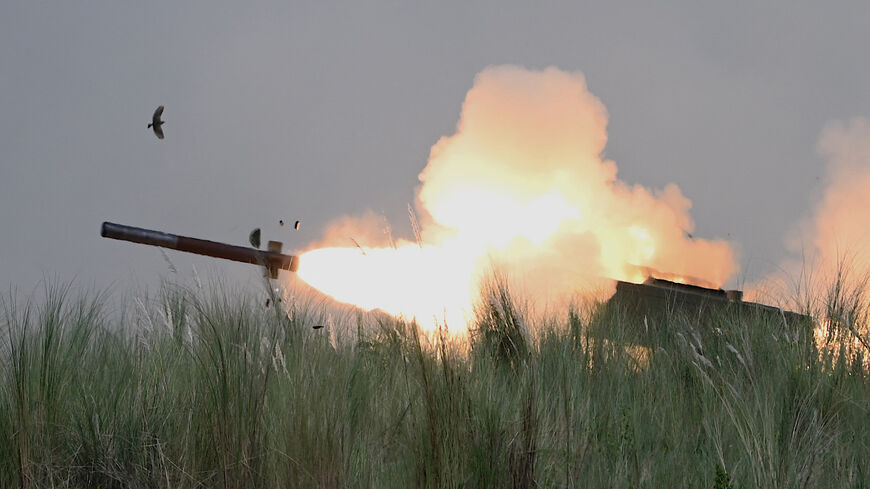WASHINGTON — The Biden administration on Tuesday approved a $524 million sale of HIMARS mobile artillery systems for Morocco, along with a $250 million sale of guided precision air-to-ground bombs.
The State Department notified Congress on Tuesday of the two proposals that include 18 high mobility artillery rocket systems (HIMARS) launchers, 40 army tactical missile systems (ATACMS), 72 guided multiple launch rocket systems (GMLRS) munitions, 9 HMMWV vehicles and 40 AGM-154C joint standoff weapons (JSOW).
Why it matters: If approved, the sale would pave the way for the first transfer of HIMARS systems to a North African country. Among Arab states, only Jordan and the United Arab Emirates possess the Lockheed-made system.
HIMARS systems have been pivotal in enabling Ukraine's military to claw back its territory from Russia, but not even Kyiv has earned US approval to receive the long-range ATACM missiles, which can reach nearly 200 miles.
Opposition to the sale in Congress is likely to be scant since Sen. Jim Inhofe (R-Okla.) retired this year. Inhofe, the former top Republican on the Senate's Armed Services Committee, was the most vocal proponent among US lawmakers in support of Sahrawi causes.
The announcement of the Biden administration's planned HIMARS sale comes as Morocco draws closer to Washington amid the Abraham Accords and Russia's war in Ukraine.
Morocco normalized relations with Israel under a push by the Donald Trump White House in December 2020, after which the Trump administration recognized Morocco’s sovereignty over the disputed Western Sahara.
The Biden administration has sought to build on that diplomatic momentum while remaining ambiguous on the Western Sahara dispute and deferring the matter to the United Nations.
Rabat’s foreign affairs minister, Nasser Bourita, met counterpart Antony Blinken in Washington last month. It was reported last year that Morocco had contributed Soviet-era T-72 tanks to Ukraine's defensive war effort via the Czech Republic, but Rabat later denied that claim, saying the armor was sent to Ukraine without permission.
Tuesday's announcement of the proposed US arms sale also came as Algeria’s President Abdel Majid Tebboune is expected to visit Moscow next month to cement his country’s decadeslong strategic ties with Russia.
Algeria remains Morocco’s archrival in the Maghreb due to its support for Polisario separatists in Western Sahara. Last month, Tebboune said his country had reached a “point of no return” in fraught relations with Morocco.
“The proposed sale will improve Morocco’s capability to meet current and future threats and will contribute to Morocco’s ability to detect threats and control its borders, contributing to the maintenance of regional stability and security,” the State Department said in a press release. “The proposed sale of this equipment and support will not alter the military balance in the region.”
Know more: Meanwhile, Tunisia has been leaning closer to Algeria. President Kais Saied's government invited Brahim Ghali, head of the Polisario Front, to an economic conference last September, leading Rabat to recall its ambassador from Tunis.








